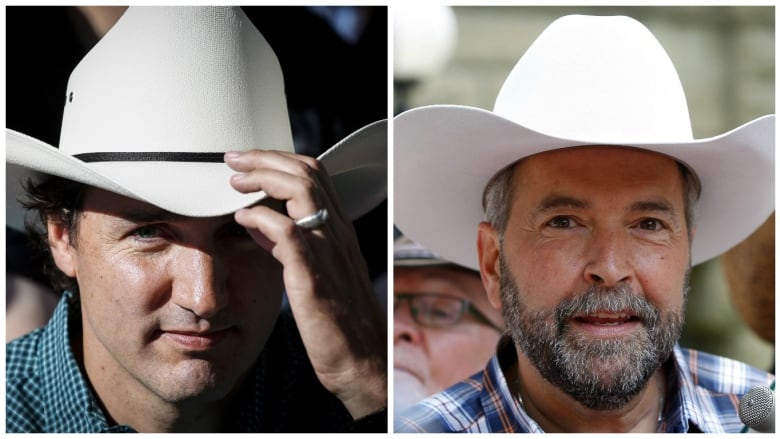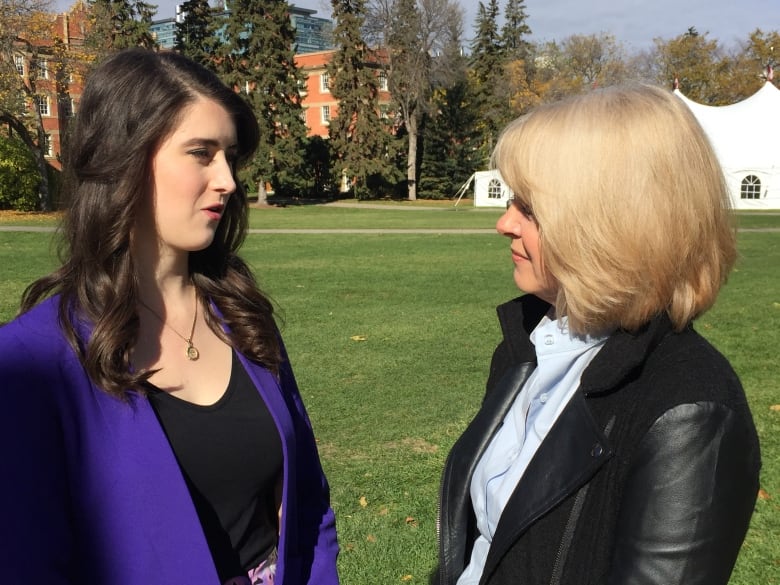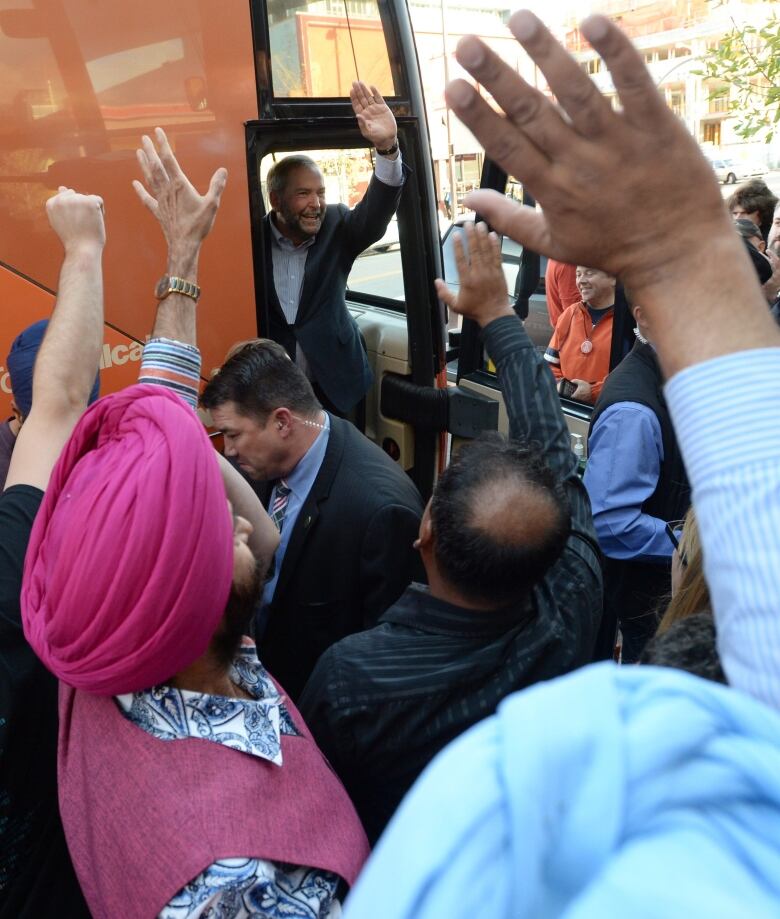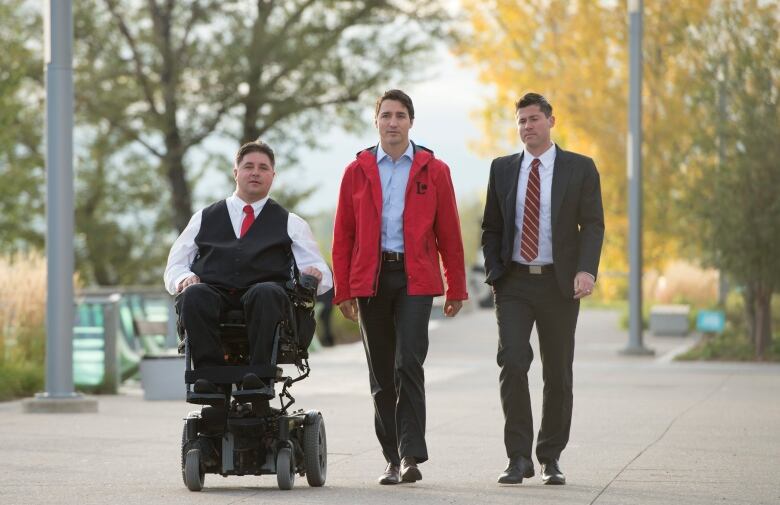Change is in the air in Conservative Alberta and opposition parties stand to gain
Seats are in play in urban ridings, where a breakthrough could decide the election

Here's a political brain-bender:Alberta could be the decider in the federal election campaign.
It might happen. If this election all comes down to a handful of seats determining who wins or who loses, Alberta is in the running to play the role of kingmaker.
- Calgary, Edmonton could show cracks in Conservatives' fortress Alberta
- Poll Tracker: Follow the latest polling trends
- ConservativeDevinderShorya 'no-show' atCalgary-Skyviewdebate
- Several Alberta seats could be up for grabs, poll analyst says
Alberta,the Rock of Gibraltar of conservative Canada, has cracked justhow deeply and atwhat cost to the federal Conservatives is still unclear, but in this campaignevery crack and cranny counts.
In 2011, Stephen Harper's Conservatives won all but one seat in Alberta. The NDP took one in Edmonton.Polls suggestat least eight ridings are in play this time.
There is political suspense inthe province for the first time in a long time, and it is infectious.
"It's kind of sparkingthis chain reaction between all people, like all the young people are starting to realize that, yes, my vote can count and that if we get together our voices can be heard,"says first-year science student Kevin Ma at the University of Alberta in Edmonton.
All across campus, students are buzzing about voting.The U of A is one of 10 universities across the country that will allow voting on campus.
Alberta NDP victory gives hope to opposition
The historic election of thefirst Alberta NDP government this spring and the end of a 43-year Progressive Conservative dynasty has engaged people.
Abla Kacemi is a second-year student at the faculty of education."It's interesting," she says."I feel like this year is a whole different thing."

Marina Banister is a student leader on campus who has been working on getting out the vote. The youth vote is traditionally elusive, but Banister believesthis time could be different.
"I think that right now it is anyone's game to take the election.There are a lot of voters like myself, young voters especially, [whose] votes are up for grabs."
Younger, more diverse Alberta
Political professor Laurie Adkin points out that Alberta has been changing for some time now, and the politics may just be catching up.
"Alberta has had this kind of populistconservative orientation for many decades that is now changing because of the net in-migration of people," she says.

The province's population has jumpedto four million from three million since 2000. It's a younger population, the youngest in Canada.
"We see those changes happening, we don't know exactly what they mean yet, but we think they mean something, because the people coming in are changing or [supplanting]the type ofvalues that underpin the Conservative government over the last 40 years.
Others point to the vibrant urban culture of Edmonton and Calgary and the election of progressive mayors in both cities.
"I think people make a lot about Alberta changing, and actually it has changed.It is definitely different," saysOmarYaqab, a consultant who teaches social entrepreneurship.
For change seekers, the weakening economy is an opportunity to re-examine the province's focus on the energy sector.
Beyond boom and bust
The boom-bust cycle is a fact of life in the province,but some say Albertans want more action on climate change and the environment, which partly explainsthe municipal and provincial political changes.
Mike Hudema,an environmental activist,says the election ofan NDP government in April was a gamechanger.
"I think that what we saw in Alberta was that when there were opportunities for real change to be made, that Albertans stepped up to the plate and were ready to do it."

No one is predicting an opposition sweep here. Harper claimsthis province as home, both personally and politically, and in the last three federal election campaigns he didn't have to worry much about Alberta.
But this time there are fierce fightsin Calgary,Edmontonand Lethbridge, and while the rural vote is still seen to be hardcoreConservative, pollsters have noted the margin of victory has been shrinking in some of those ridings.
Yaqab is realistic about how many seats the Liberals or NDP could win, but he's also not worried.
"It is interesting it is not a foregone conclusion," he says.
"I think that alone is a victory, that it's not a sure thing, that people are thinking about it, scrutinizing, that more people are interested.And even if it doesn't change, I think we are at a tipping point. If it doesn't manifest itself this election, it will manifest soon," says Yaqab.












_(720p).jpg)


 OFFICIAL HD MUSIC VIDEO.jpg)
.jpg)



























































































